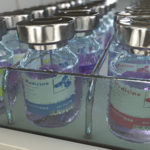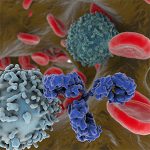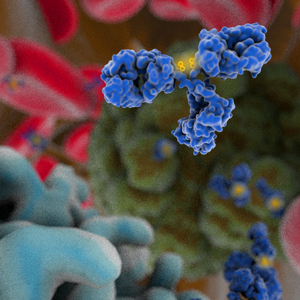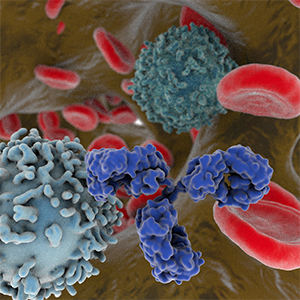 The European Commission has approved Adtralza® (tralokinumab) for the treatment of moderate-to-severe atopic dermatitis in adult patients who are candidates for systemic therapy. The European Commission decision is valid in all European Union Member States, Iceland, Norway, and Liechtenstein.
The European Commission has approved Adtralza® (tralokinumab) for the treatment of moderate-to-severe atopic dermatitis in adult patients who are candidates for systemic therapy. The European Commission decision is valid in all European Union Member States, Iceland, Norway, and Liechtenstein.
Tralokinumab is a human IgG4l antibody targeting IL-13, a pleiotropic T helper type 2 cytokine associated with atopic dermatitis and other inflammatory disorders. The antibody interferes with IL-13-mediated signaling by blocking its interactions with both IL-13 receptor α1 and IL-13 receptor α2. Originally identified by Cambridge Antibody Technology and developed by MedImmune as CAT-354, AstraZeneca sold the rights to tralokinumab in dermatology indications to LEO Pharma in 2016.
The marketing applications are supported by data from three Phase 3 studies, ECZTRA 1 (NCT03131648), 2 (NCT03160885), and ECZTRA 3 (NCT03363854). The randomized, double-blind, placebo-controlled, multinational, 52-week ECZTRA 1 and ECZTRA 2 trials evaluated the safety and efficacy of tralokinumab (300 mg SC) as monotherapy in adults with moderate-to-severe atopic dermatitis who were candidates for systemic therapy. ECZTRA 3 was a double-blind, randomized, placebo-controlled, multinational 32-week study of 380 patients that evaluated the safety and efficacy of tralokinumab (300 mg SC) in combination with topical corticosteroid in adults with moderate-to-severe atopic dermatitis who were candidates for systemic therapy.
The results of the three Phase 3 studies were recently published in the British Journal of Dermatology. [1] The primary outcome measures for the studies included an Investigator’s Global Assessment (IGA) of 0 or 1 and 75% improvement in Eczema Area and Severity Index (EASI 75) at Week 16. At this time point in the ECZTRA 1 and ECZTRA 2 studies, 15.8% and 22.2% of patients who received tralokinumab achieved an IGA score of 0/1 vs. 7.1% and 10.9% of patients who received placebo, respectively. More patients who received tralokinumab also achieved EASI 75 compared to those who received placebo (25.0% vs. 12.7% and 33.2% vs. 11.4% in ECZTRA 1 and ECZTRA 2, respectively). In the ECZTRA 3 study, which included use of topical corticosteroid, 38.9% patients who received tralokinumab achieved IGA 0/1 vs. 26.2% of those who received placebo. EASI 75 was achieved in 56.0% patients who received tralokinumab vs. 35.7% of those who received placebo. [2]
1. Wollenberg A, Blauvelt A, Guttman-Yassky E, Worm M, Lynde C, Lacour JP, Spelman L, Katoh N, Saeki H, Poulin Y, et al. Tralokinumab for moderate‐to‐severe atopic dermatitis: results from two 52‐week, randomized, double‐blind, multicentre, placebo‐controlled phase III trials (ECZTRA 1 and ECZTRA 2). Br J Dermatol. 2020. doi: 10.1111/bjd.19574.
2. Silverberg JI, Toth D, Bieber T, Alexis AF, Elewski BE, Pink AE, Hijnen D, Jensen TN, Bang B, Olsen CK, Kurbasic A, Weidinger S. Tralokinumab plus topical corticosteroids for the treatment of moderate-to-severe atopic dermatitis: results from the double-blind, randomized, multicentre, placebo-controlled phase III ECZTRA 3 trial. Br J Dermatol. 2020. doi: 10.1111/bjd.19573.
Need help keeping up to date on US and EU approvals?
The Antibody Society maintains a comprehensive table of approved monoclonal antibody therapeutics and those in regulatory review in the EU or US. The table, which is located in the Web Resources section of the Society’s website, can be downloaded in Excel format.




